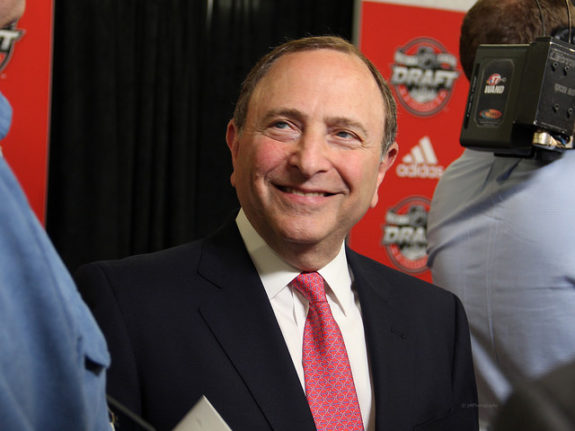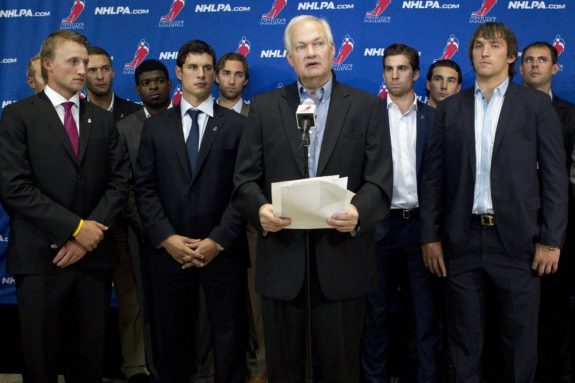The NHL took a major step forward on Monday when the NHL Players’ Association (NHLPA) announced that they had declined to re-open the Collective Bargaining Agreement (CBA).
If the NHLPA had decided to re-open the CBA it would open the possibility of a lockout in 2020-21. That threat has been a dark stormy cloud on the horizon for the past couple of years.
For NHL fans, there have already been three lockouts since 1994 including the last lockout which occurred in 2012-13. The current CBA was a 10-year deal with the option for both sides to opt out after just eight years.
The league declined to opt out of the current CBA roughly three weeks before the NHLPA made the decision to do so. Now with both parties declining the opt-out, the next threat of a work stoppage is the 2022-23 season with the current CBA now expiring on Sept. 15, 2022.
Both in the NHL press release and the NHLPA release there were comments surrounding acknowledgement of concerns within the current deal and the willingness to work with each other to live within the present framework. The discussions have been ongoing and should provide some comfort that both sides are on good terms for the time being.
Many, including myself, were concerned that the NHLPA would opt out of the CBA given the various concerns the players had with the deal including the league’s decision to prevent players from appearing in the Olympic Games.
What If?
Now I am not one for wanting a work stoppage in the league, but did declining to opt out really make sense for the NHLPA? The current CBA has its flaws for the players and with both sides reportedly going back and forth on an amended/extended version of the current CBA for months it could stall talks out in declining the opt-out.

For the NHLPA it would have been a calculated risk to put a deadline onto the league to get a deal done or risk facing yet another lockout. Doing that is incredibly risky. But with the NHLPA’s decision to decline the opt out, the timeline of getting a deal done doesn’t have that same sense of urgency anymore.
The last work stoppage the league had in the 2012-13 season lasted from when the previous deal expired on Sept. 15, 2012 until the current CBA was signed on Jan. 12, 2013. That was 119 days of work stoppage that caused games to be cancelled and a shortened 48-game season. To put that in perspective, the league had to cancel 510 regular-season games.
In 2012, NHL Commissioner Gary Bettman claimed that each day the league lost anywhere from $18 million-to-$20 million a day, which trickles down to $8 million-to-$10 million a day for the players. Those figures wouldn’t include the restaurants, bars, and cities that are downstream in the NHL revenue channel.
While lockouts certainly frustrates fans, the previous lockout resulted in an average attendance in the regular season actually rising 1.8% with fans returning to the league rather quickly.
Benefits Hockey Fans
While a potential lockout would have had financial implications for the league, players, and any business that typically sees rewards from the NHL, the number one thing an opt out would have done is hurt fans.

If the NHLPA had decided to opt-out of the current CBA it would have unleashed a storm cloud over the coming season. Anytime a lockout looms in a league it provides a real negativity surrounding a sport. The last thing hockey fans wanted to see was the wall-to-wall coverage of a looming lockout that takes away from the season at hand.
But the real test for the future of NHL is in the coming weeks and months. The bottom line is the NHLPA declining the opt out was a sign of good faith. Even though the current CBA will run its full length of 10 years, that doesn’t mean things couldn’t get bitter quickly between both sides.